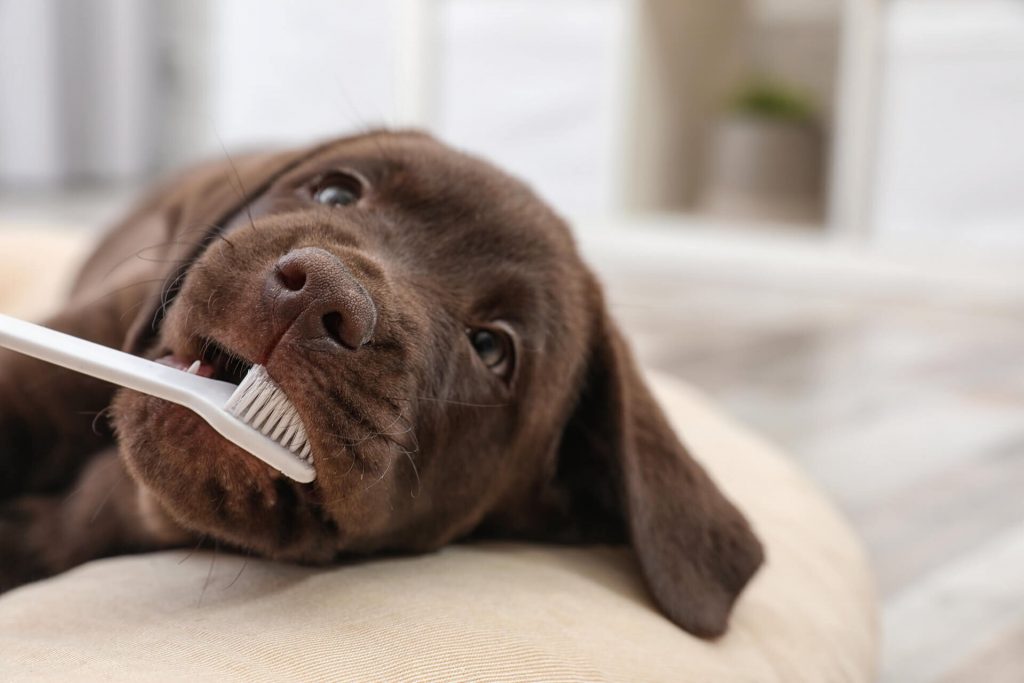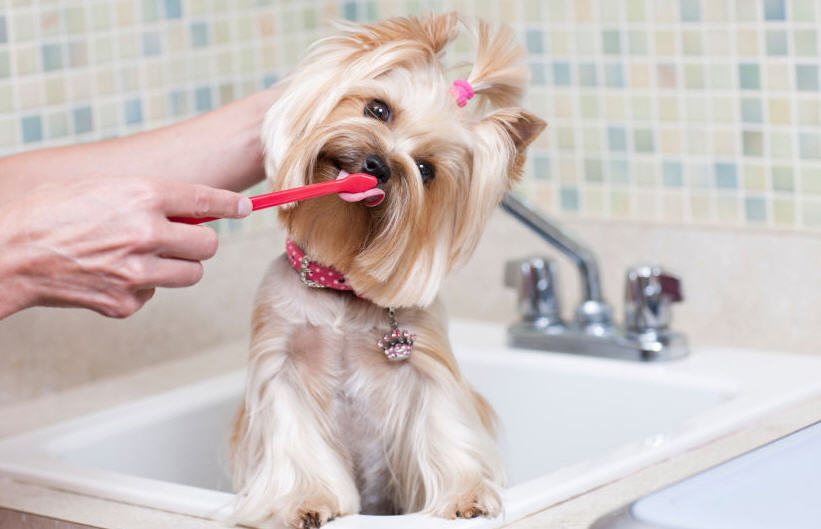It may sound strange to humans that a dog, a predator by nature, might need dental care. But, unfortunately, dogs began to suffer more and more from various diseases of the oral cavity. And besides, adequate care affects the health of the animal as a whole!

Puppy Dental Care
Small dogs up to about 4 months old have milk teeth. They do not need special care, they do not have to be cleaned with toothbrushes and pastes. At this age, a very important role in the formation of strong permanent teeth is played by proper nutrition and additional food supplements, which should contain calcium and phosphorus in sufficient quantities, such as Calfostonik or VitamAll Calcium +.
In order for a small pet to form a strong and developed jaw, it is necessary to give the animal something to chew on all the time, for example, it can be various specialized toys (bones) or some kind of solid food (carrots, cabbage). If your pet grows on dry food, then after 1 month you should not soak it, then the four-legged baby will not only be able to eat, but also train his jaw while chewing.

Care in transition
In dogs, teeth begin to change from 4 months and on average up to 6. Here, the most important thing for dog owners is to ensure that temporary teeth fall out first and only then permanent teeth begin to grow. This is so important because if the milk ones do not fall out in time, it is likely that the dog’s teeth will begin to grow in two rows, or, for example, fangs may begin to grow into the gum. In order to help your pet with the timely change of teeth, you can again come to the rescue of special toys, bones and other hard vegetables, food, etc. If you see that the teeth do not fall out in any way, you can shake the old ones a little. If all else fails, it is best to consult a veterinarian for advice and, if necessary, to remove temporary teeth.

Primary teeth care
Up to 1 year old, problems with teeth are extremely rare in dogs, and if there are any, then this is most often a genetic predisposition. But with age, if the oral cavity is not cared for, a significant deterioration may occur. Food particles and bacteria form visible plaque on the teeth, and if you do not brush your teeth, it becomes thicker every day, and thanks to saliva, all this can turn into tartar, which will not only irritate the gums of the pet, but can subsequently cause periodontal disease. The older the dog gets, the stronger the microbes affect the gum and tooth, and in the end, this can all end in tooth loss.

And the most dangerous thing is that such bacteria can cause various diseases of the kidneys, heart and lungs, if they are in the systemic circulation of the animal.
Therefore, dog owners will have to take care of their permanent teeth right up to the last breath of their pet. The main thing is to choose specialized brushes and pastes specifically for dogs! There are also special dog foods and treats that can help reduce tartar buildup, but this should be discussed with your veterinarian.
